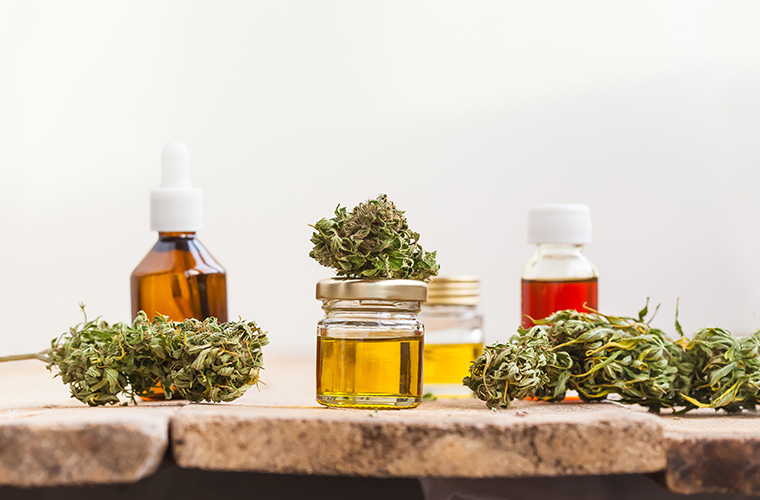[vc_row][vc_column][vc_column_text]Now that you can find CBD oil and CBD infused products in grocery stores and gas stations the confusion concerning these products has escalated since my last writing on this subject. Let me update you on CBD oil as a useful tool for medical conditions, the legal issues surrounding CBD oil products, and CBD oil in the medical literature.
The U.S. Drug Enforcement Agency (DEA) divides drugs and chemicals into five categories or “Schedules” well known to medical providers with Schedule 1(I) as the least dangerous and addictive to Schedule 5 (V) to be the most. Schedule 1drugs are defined as the highest potential for abuse (i.e. LSD, heroin, cocaine, and cannabis) whereas Schedule 5 drugs containing a relatively low quantity of narcotics/opioids (i.e. Lyrica, Robitussin AC, and Lomotil). Since my last writing a new CBD oil containing drug called Epidiolex was approved by the FDA for specific childhood seizure conditions.
For years CBD oil was confused with and labeled a Schedule 1 drug along with high tetrahydrocannabinol (THC) containing products. There is still an issue because of poor regulation and the hyper-marketing of CBD products which perpetuates confusion in not only the general public but within the medical community. In September 2018 the Farm Bill was passed in Congress which allowed the States to decide the legality and Schedule classification of cannabis and CBD products. As of this writing there are only 3 States that still consider CBD oil illegal: Nebraska and South Dakota. Idaho law remains ambiguous due to the caveat stating the concentration of THC must be 0% which places the burden of the source of CBD on the manufacturer for absolute legality. Not only can you not purchase CBD oil in these states, but CBD products are also illegal to consume.
There is an ever-growing amount of research in the use of CBD in a variety of conditions. I have found that high-quality, properly tested and standardized CBD oil can be safe and useful in many medical conditions without the fear of losing self-control, getting “high,” or addiction. Your medical provider must understand that the term “CBD” is a general term for multiple compounds and forms before they can recommend any cannabinoid product for a specific condition.
And no, “CBD infused” tampons, lotions, or soaps do not have any role or long-term effect in treating medical conditions.
Your Passionate DrG[/vc_column_text][vc_empty_space][vcex_button url=”https://www.atlantismedcenter.com/wp-content/uploads/2019/11/The-High-Points-of-Marijuana-Hemp-Oils.pdf” target=”blank”]READ MORE[/vcex_button][vcex_button url=”https://www.atlantismedcenter.com/shop/full-spectrum-cbd-drops/” target=”blank”]BUY CBD Drops[/vcex_button][/vc_column][/vc_row]

